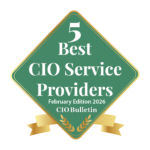In today’s competitive market, midsize companies are increasingly turning to ERP (Enterprise Resource Planning) systems to streamline their operations, improve efficiency, and gain a competitive edge. With numerous options available, selecting the right ERP system can be a daunting task. This article compares the top 10 ERP systems based on their features, scalability, affordability, and suitability for midsize companies. After summarizing each of the top ten, we will also provide recommendations for the best ERP based on overall capabilities, price, and migration path.
1. Odoo
- Overview: Odoo is an open-source ERP system that has gained popularity for its affordability and extensive customization options. It offers a wide range of modules covering everything from CRM to e-commerce.
- Strengths: Affordable, highly customizable, wide range of modules, and strong community support.
- Weaknesses: Requires technical expertise for customization, and support may be limited for the free version.
- Best For: Companies seeking an affordable, customizable ERP solution with a wide range of features.
2. Oracle NetSuite
- Overview: Oracle NetSuite is a cloud-based ERP system that provides a full suite of applications, including financials, CRM, e-commerce, and supply chain management. It is particularly popular among growing businesses due to its flexibility and ease of integration with other systems.
- Strengths: Cloud-based architecture, strong financial management, excellent scalability, and a robust ecosystem of third-party integrations.
- Weaknesses: Higher subscription costs, potential for customization limitations, and reliance on internet connectivity.
- Best For: Companies looking for a cloud-based solution with strong financials and scalability.
3. Microsoft Dynamics 365 Business Central
- Overview: Microsoft Dynamics 365 Business Central is a versatile ERP system that integrates seamlessly with other Microsoft products, such as Office 365 and Power BI. It offers a wide range of functionalities, including financial management, supply chain, project management, and sales.
- Strengths: Seamless integration with Microsoft products, flexible deployment options (cloud or on-premise), strong financials, and user-friendly interface.
- Weaknesses: Customization can be challenging, and some advanced features require additional modules or third-party add-ons.
- Best For: Companies already using Microsoft products and seeking an integrated ERP solution.
4. Sage Intacct
- Overview: Sage Intacct is a cloud-based financial management solution known for its strong accounting features. It is particularly popular in the services sector, where financial management and compliance are critical.
- Strengths: Excellent financial management, strong reporting and analytics, and easy integration with other financial tools.
- Weaknesses: Limited functionality outside of financial management, making it less suitable for companies seeking a comprehensive ERP system.
- Best For: Services-based companies focusing on financial management and compliance.
5. SAP Business One
- Overview: SAP Business One is a leading ERP solution tailored for small to midsize businesses. It offers a comprehensive suite of modules covering financial management, sales, inventory, production, and customer relationship management (CRM). SAP Business One is known for its scalability, allowing companies to start small and expand as their needs grow.
- Strengths: Strong financial management capabilities, deep industry-specific functionality, extensive customization options, and a global support network.
- Weaknesses: Higher cost compared to some competitors, complex implementation, and steep learning curve.
- Best For: Midsize companies with complex business processes and a need for scalability.
6. Infor CloudSuite
- Overview: Infor CloudSuite offers industry-specific ERP solutions, with a strong focus on manufacturing, distribution, and healthcare. It leverages AI and analytics to provide deep insights into business operations.
- Strengths: Industry-specific functionality, AI-driven insights, strong analytics, and cloud-based deployment.
- Weaknesses: Can be expensive, complex implementation, and may require significant customization for non-industry-specific needs.
- Best For: Manufacturing, distribution, and healthcare companies looking for an industry-tailored ERP solution.
7. Epicor ERP
- Overview: Epicor ERP is a popular choice in the manufacturing sector, offering robust features for production, inventory management, and supply chain optimization. It is designed to help companies streamline their operations and improve efficiency.
- Strengths: Strong focus on manufacturing and production, scalable architecture, and deep industry-specific features.
- Weaknesses: Implementation can be complex, and costs can be high, particularly for smaller businesses.
- Best For: Manufacturing companies seeking an ERP system tailored to their specific needs.
8. SYSPRO
- Overview: SYSPRO is an ERP system designed for manufacturing and distribution businesses. It offers robust functionality for production management, inventory control, and supply chain optimization.
- Strengths: Ease of use, strong operational functionality, and industry-specific features.
- Weaknesses: Limited scalability for very large enterprises, and customization options can be limited.
- Best For: Midsize manufacturing and distribution companies looking for an easy-to-use ERP system.
9. Acumatica
- Overview: Acumatica is a cloud-based ERP solution that is highly regarded for its flexibility and support for mobile and remote work environments. It offers a full suite of ERP modules, including financials, CRM, and inventory management.
- Strengths: User-friendly interface, flexible licensing options, strong mobile support, and cloud-based architecture.
- Weaknesses: Some advanced features may require third-party add-ons, and costs can add up as more modules are added.
- Best For: Companies looking for a flexible, cloud-based ERP solution with strong mobile support.
10. QAD Adaptive ERP
- Overview: QAD Adaptive ERP is focused on the manufacturing sector, with a particular emphasis on the automotive and life sciences industries. It offers deep industry-specific functionality and strong analytics capabilities.
- Strengths: Industry-specific features, strong analytics, and adaptability to changing business needs.
- Weaknesses: High cost and complexity of implementation, particularly for smaller businesses.
- Best For: Manufacturing companies in the automotive and life sciences sectors.
Best Overall Choice: Oracle NetSuite
Oracle NetSuite stands out as the best overall ERP system for midsize companies. Its cloud-based architecture, comprehensive suite of applications, and scalability make it an ideal choice for businesses looking to grow and adapt to changing market conditions. NetSuite’s strong financial management, robust reporting, and extensive integration options provide companies with the tools they need to manage their operations efficiently. Although it comes at a higher cost, its flexibility and comprehensive feature set justify the investment for companies seeking a long-term ERP solution.
Most Affordable ERP System: Odoo
Odoo is the most affordable ERP system on this list, particularly for companies with the technical expertise to leverage its open-source nature. The ability to customize the system extensively and the availability of a wide range of modules make Odoo a cost-effective solution for businesses on a budget. While it may require more hands-on management and technical knowledge, Odoo’s affordability and flexibility make it an attractive option for midsize companies looking to minimize ERP costs.
Best Choice for Companies Upgrading from QuickBooks: Sage Intacct
For companies upgrading from QuickBooks, Sage Intacct is the best choice. Its strong focus on financial management makes the transition smoother for businesses familiar with QuickBooks’ accounting features. Sage Intacct offers enhanced financial reporting, automation, and scalability while maintaining an intuitive user interface. Additionally, its cloud-based nature ensures that companies can continue to access their financial data from anywhere, just as they did with QuickBooks.
The Choice is Critical – Don’t Just Trust a List
Selecting the right ERP system is crucial for midsize companies looking to optimize their operations and drive growth. While we’ve offered our opinions and some notes on the top ten systems based on our experiences with our client base, the nuances of this selection go far beyond a web article top ten list. We recommend that companies consult with an expert in the space about your specific needs, growth plans, and strategy, and then execute a professional system evaluation and selection process. Choosing an ERP is a decision thar will echo through the years for your organization! Leveraging outside expertise makes sense here just as with any high-impact strategic decision.




